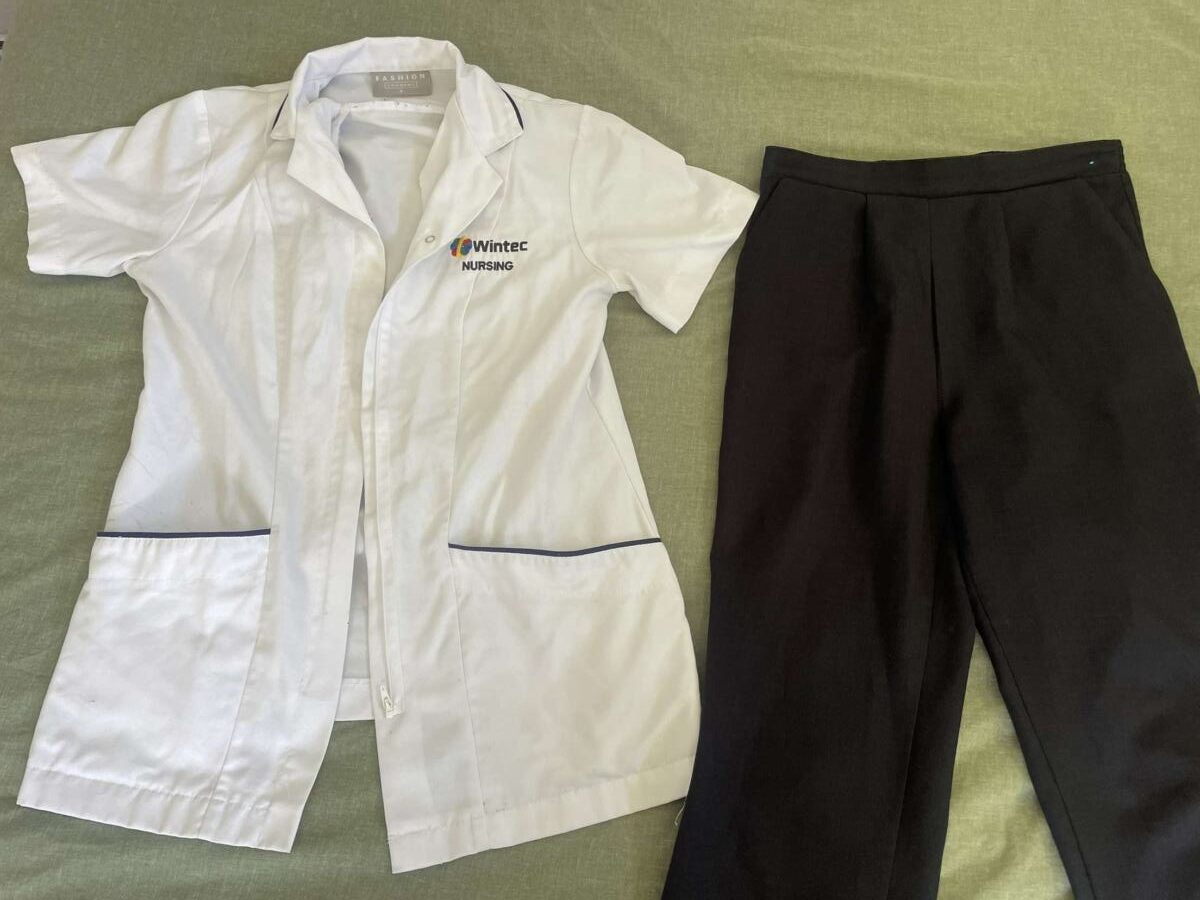Saving lives, without living them – a chat with graduate nurse Emma Harper.
Nurses looking to step into the workforce in New Zealand face a number of challenges throughout their studies, from unpaid placements to working part-time to survive and navigating the cost of living.
When is it time to admit that this is too much?
Speaking with 21-year-old Emma Harper, a recent nursing graduate from Wintec Te Pūkenga, we gain an inside look into the gruelling struggles these committed students experience.

Unpaid placements are a huge part of a nursing student’s education, putting theories into practice, learning much-needed skills that can only be developed through hands-on experience, as well as gaining the confidence to step into a workplace following graduation. While these are all very important for the development of a student nurse, the method of gaining it isn’t as simple.
Working approximately 1100 hours of unpaid placements during a 3-year degree, nursing students aren’t left with a lot of time for any other aspects of their lives.
Speaking with Harper, you gain an understanding of how this affects her ability to focus on her studies, as well as everything else going on in life.
“Unpaid placements impact me immensely, I can’t work, it distracts my brain a lot, constantly losing money, paying for parking and everything else I have to spend.”
Emma Harper
But when it comes down to business, they manage to get by, with no impact on their patients. Harper says “I don’t think it affects the patient care as much when you’re being a nurse, you tend to switch all that off.”
Student nurses like Harper also can’t work as often as the majority of other students, with the potential for placements being during the day or night, as well as the constant other theory work that looms over their heads. There isn’t much time allocated for part-time work, and that makes the whole experience all the more difficult.
Harper luckily enough works at a rest home, continuing the trend of caring for people and developing a form of professional practice while away from her studies. The pay is not great, but the ability to pick up shifts and work when she’s available makes it quite useful for someone with such a chaotic schedule.
This isn’t the case for all student nurses though, as only a third of them are school leavers, and the rest could be juggling family matters and many other challenges that make part-time work hard to hold onto.
Harper said “It’s definitely affected my well-being, and I have a student loan to help out as well. I have to work every summer, and every break just to cover my living and my food and power.”
“After a 10-week placement, it really puts you financially low, and we still don’t earn as much as we should.”
Compensation for these placements remains a contentious debate, as some believe the backing for these long and draining hours is a form of payment, even if it is below minimum wage, while others believe it could compromise the education aspect.
Harper made it clear how she felt on the matter of compensation. “Yes, I 100% agree. First-year, maybe not, as we only had a 3-week placement, and it’s mostly observing. But second and third year, definitely, you’re taking patient loads, and you’re doing exactly what the nurse is doing, but under supervision.”
“It’s exhausting, I’m making clinical decisions for the placement, and after a shift, I’m just drained, mentally, as well as physically. Nursing students are hard on themselves, but sometimes I’ve asked myself if I’m even built for it.”
Emma Harper

The institutions that offer education for these budding nurses are working hard to offer a crucial process for an industry that is lacking numbers, but there are not enough nurses in our country, and this means there isn’t enough support when they step into the workforce, even during their education.
So what can they do to change this demanding situation? From schedule changes to financial aid, there are ideas floating about. Harper said “I think paying for placements would help a lot, we wouldn’t have to work and it would take a lot of stress off. As well as even offering a fund for midwifery, nursing or even general healthcare.”
“There needs to be more support, we need the tutors constantly telling us they’re here to help, as well as offering us that push when we need it.”
These nursing students are our next generation of healthcare providers and play a huge part in our society. Their voices matter, but how can they advocate for what needs to be done and how they truly feel about it while actually experiencing the juggle of the degree?
“It would be really cool to have young nurses coming into classes to talk about their experiences, and it would be really beneficial to us knowing how someone got through” Harper said.
The struggles these nursing students are facing in our country are multifaceted, with so many different factors and situations making it all the more difficult. For Emma Harper, she managed to get by, but how many students haven’t? And how many are out there right now stressing the very thought of taking on their first, second, or even third year of studies? By addressing these challenges, forcing dialogue and putting pressure on the people behind the scenes to make important changes, there’s hope we will eventually see a positive switch in the education of our next healthcare superheroes.




